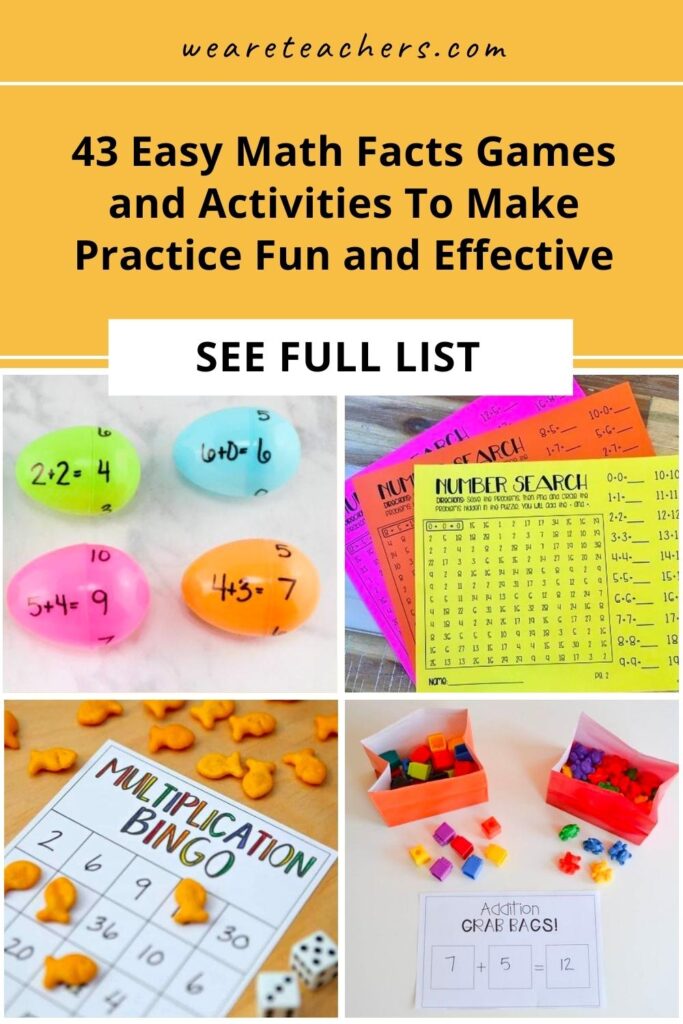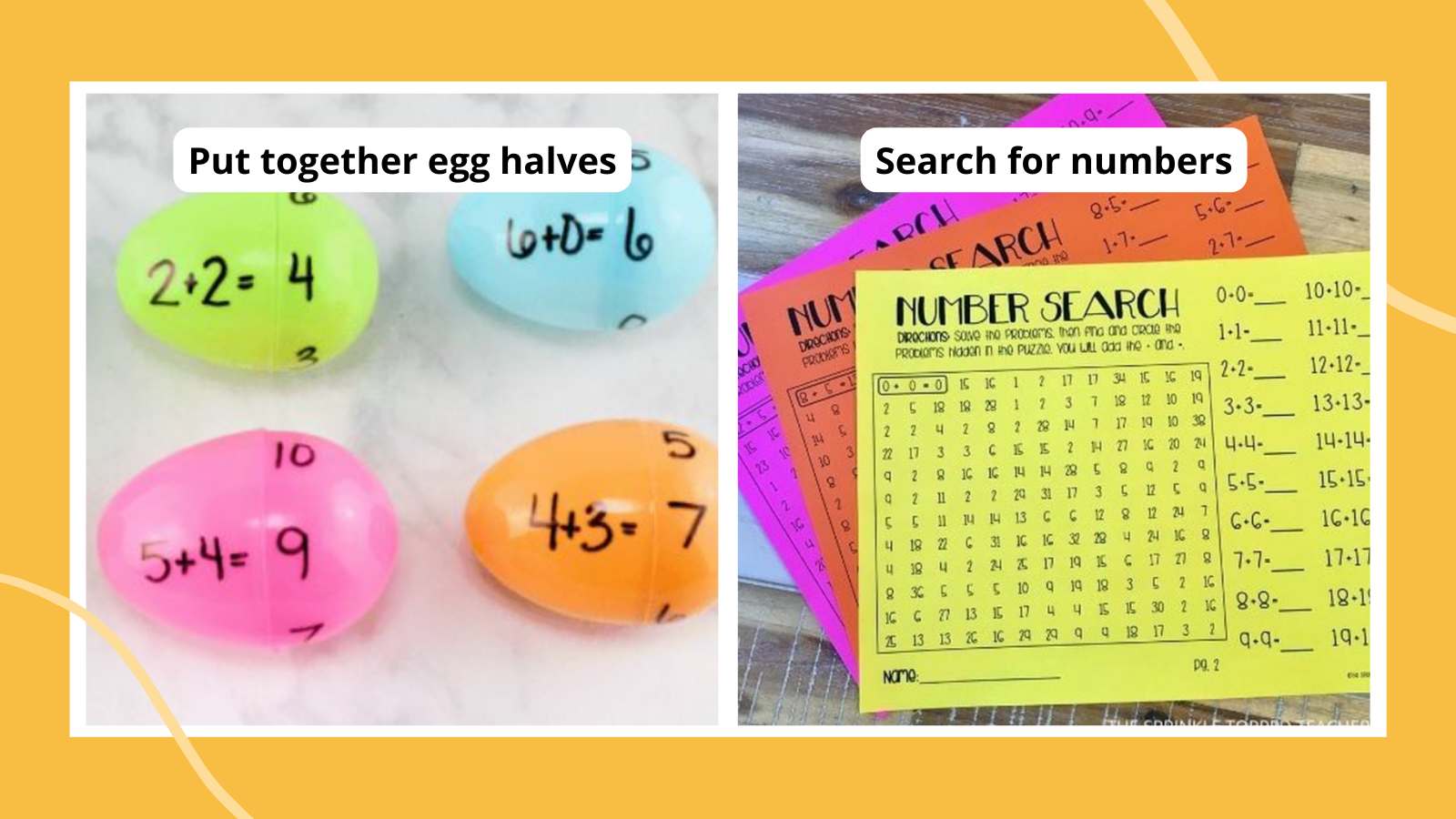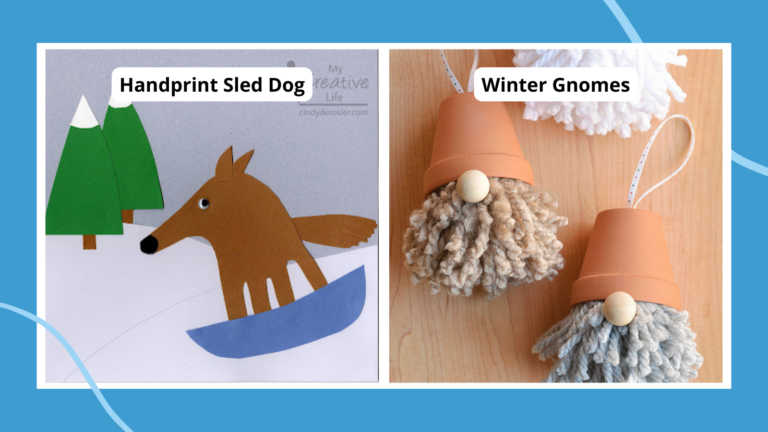When it’s time for math facts practice, do you automatically reach for the flash cards? That’s one classic way to learn, but it’s not very exciting, and some kids just don’t respond to it. That’s why we’re big fans of these new ways to get in some math facts practice. This roundup of math facts games, activities, and crafts here are ideal for reluctant learners and lots of fun for everyone!
1. Put together egg halves
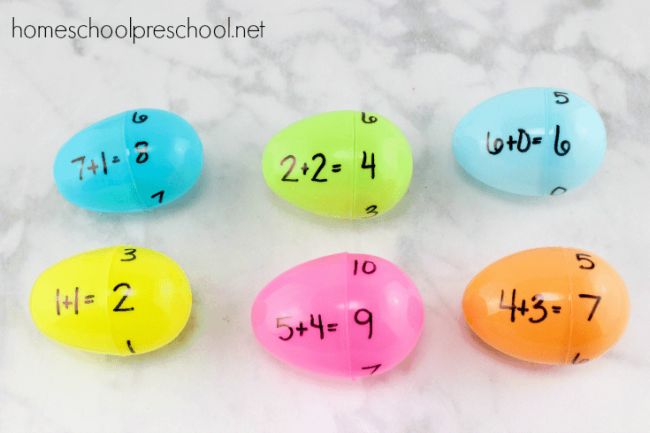
This is a quick hands-on way to practice math facts. For more excitement, try hiding the egg halves and letting kids hunt for them before they match them up!
Learn more: Homeschool Preschool
2. Roll and multiply
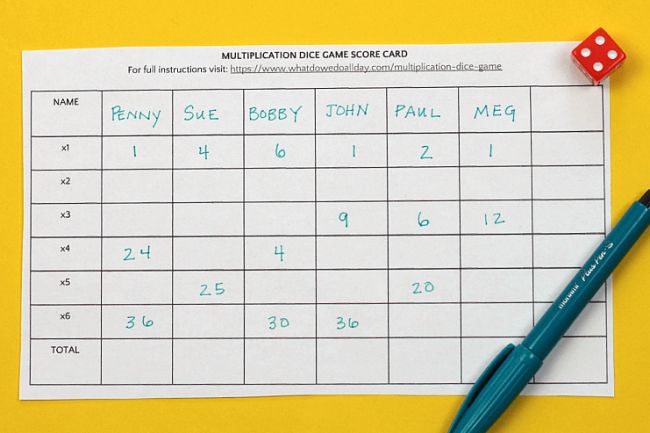
This is like a simpler version of Yahtzee, and it’s a cool way to practice multiplication. If you use two dice instead of one, kids can practice their facts up to 12.
Learn more: What We Do All Day
3. Compete at Multiplication Squares
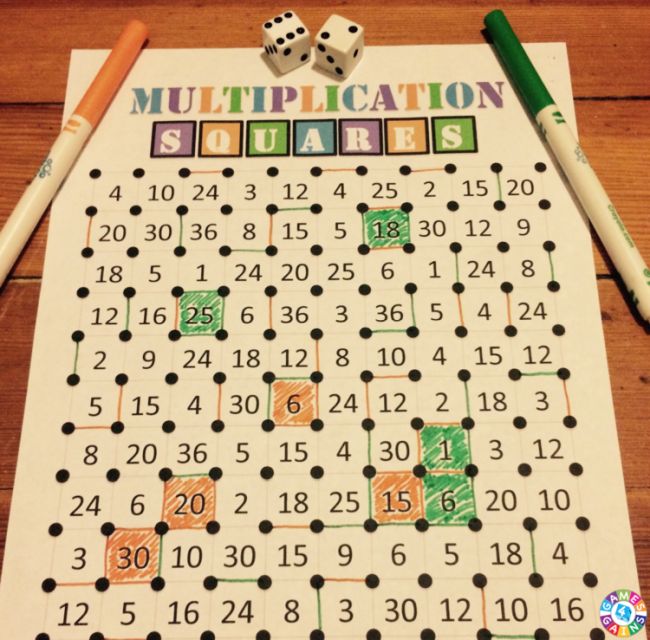
If you’ve ever played Dots and Boxes, this will look familiar. Players roll two dice (try these polyhedral dice to expand the facts in play), and draw a line to connect two dots next to the answer. If they complete a box, they color it in with their own marker.
Learn more: Games 4 Gains/Multiplication Squares
4. Get Four in a Row
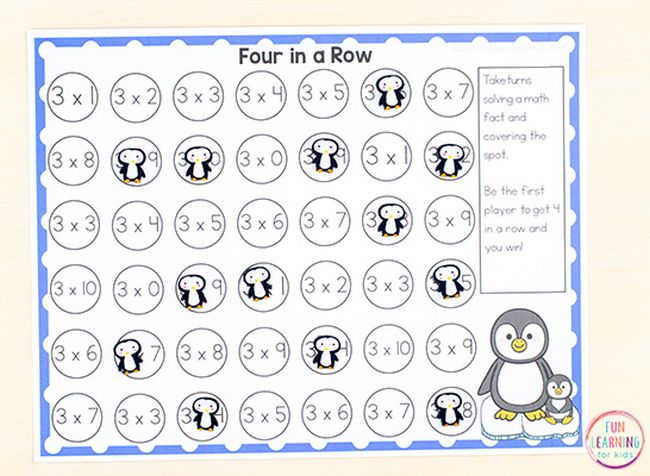
This free printable is completely editable, so you can use it for any type of math facts practice. Kids choose a problem and give the answer. If they get it right, they cover it with their marker. When they get four in a row, they win!
Learn more: Fun Learning for Kids
5. Try “Sticky Math”
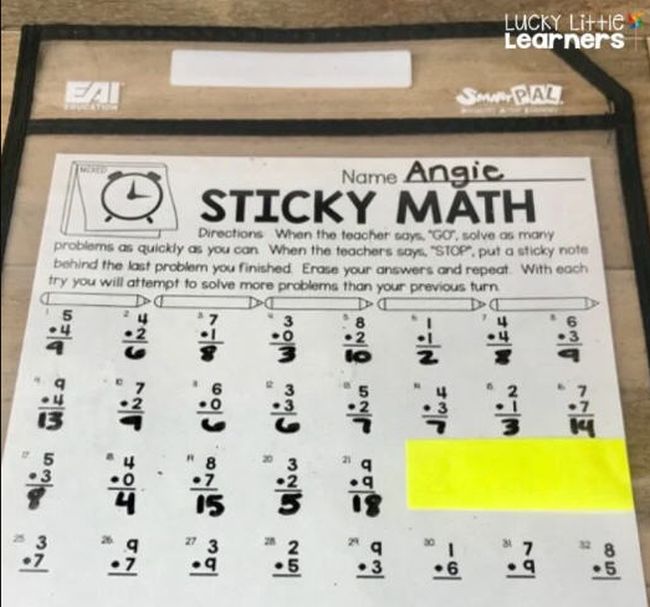
Don’t confuse Sticky Math with timed tests. The goal is just for kids to complete as many problems as possible in a set amount of time, then work to beat that record each time.
Learn more: Lucky Little Learners
6. Face off in Dice War
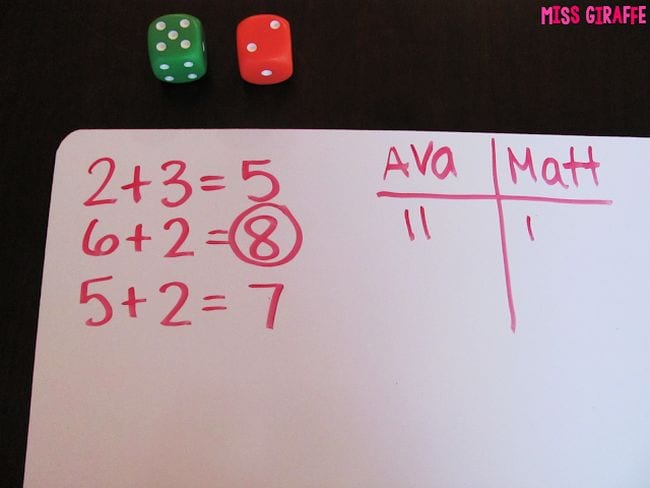
Dice games are fantastic in the classroom! With this one, kids practice their addition facts and get a little work with subitizing too. The concept is so simple: Each player rolls the dice and adds up their numbers. The highest sum wins that round. This is three math facts games in one since you can use it for subtraction and multiplication as well as addition.
Learn more: Miss Giraffe’s Class
7. Assemble math-facts grab bags
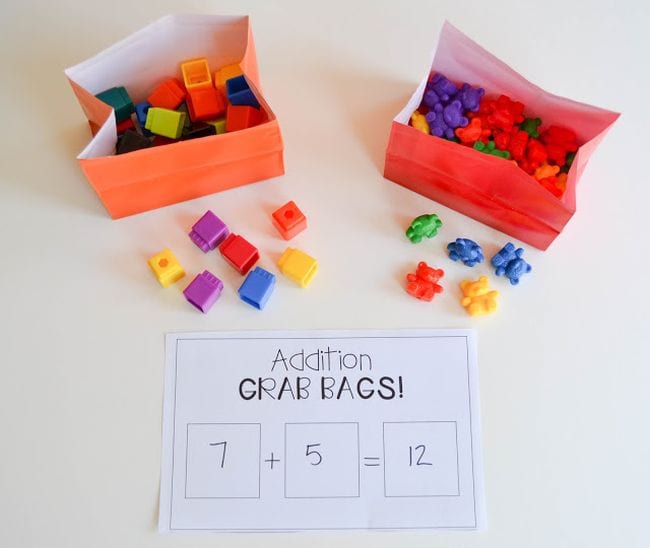
Fill a variety of bags with collections of small objects. Kids grab a handful from two different bags, then count and add up the results. Be sure they write it all down to get practice at setting up equations. (Also, try this with subtraction and multiplication facts.)
Learn more: Susan Jones Teaching
8. Play Shut the Box
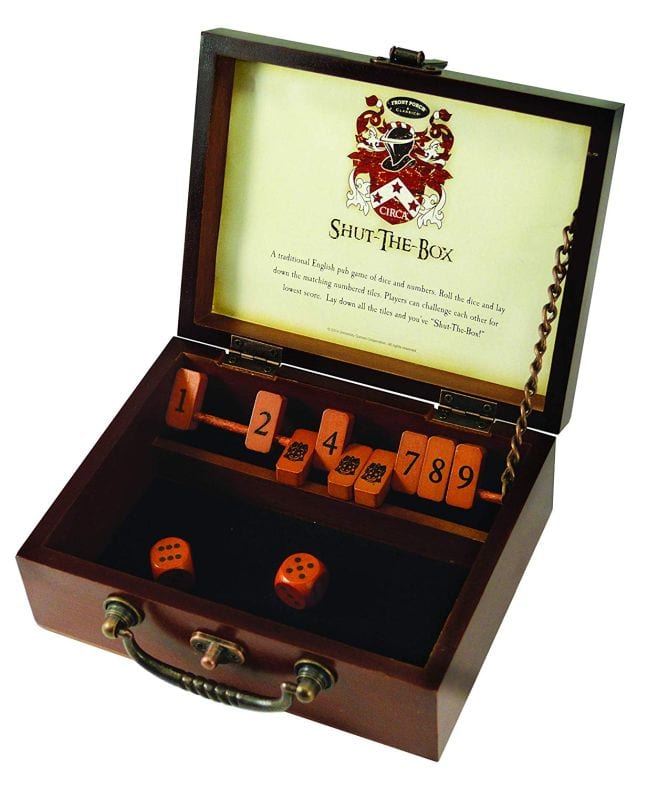
This game has been played for hundreds of years, but it’s a fun and sneaky way to practice addition facts fluency! The goal is to “close” each of the numbers in the box from 1 to 9 by rolling the dice. For instance, if a player rolls 11, they may close 1, 2, 3, and 5, as these add up to 11. If no numbers are available to add up to the dice total, play passes to the next player and continues until someone finally “shuts the box” by closing the last available number. You can play this game as people have for centuries with a specially designed box. You don’t need the box, though; simply have kids write out the numbers 1 through 9 and cross them out as they play.
9. Play Math Facts War
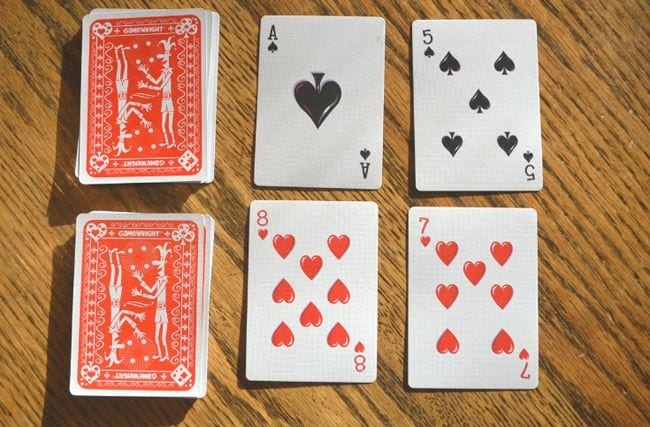
Each student flips two cards, then adds them (or subtracts or multiplies). The person with the highest total keeps both cards. For a tiebreaker, flip another card. See more rules at the link.
Learn more: Math Facts War/Creative Family Fun
10. Turn an egg carton into a problem generator
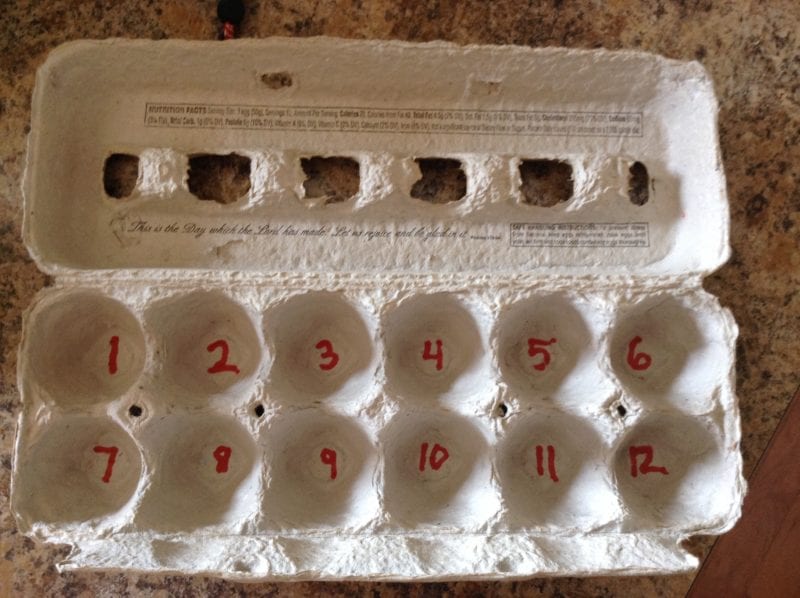
Using an egg carton, have students write the numbers 1 through 12 in the bottom of each depression. Place two marbles inside the egg carton and close the lid. Shake the egg carton, open the top, and then add, subtract, or multiply whichever two numbers the marbles have landed on.
Learn more: The Unlikely Homeschool
11. Assemble a domino puzzle
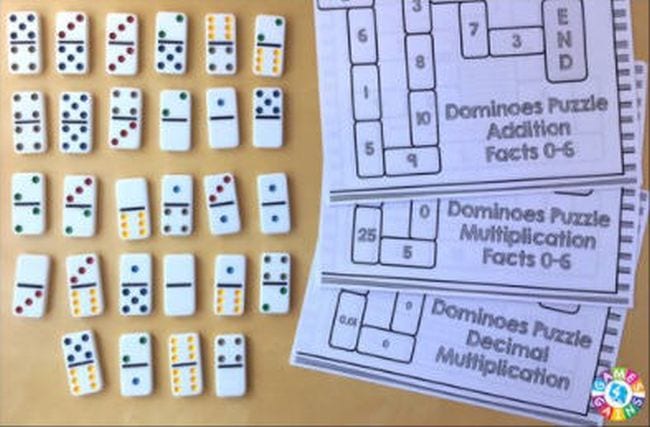
Dominoes are perfect for math facts practice! Keep it simple by pulling a domino from a bag, then adding, subtracting, or multiplying the two numbers.
For even more fun, print the free puzzles at the link below. Then start filling in the puzzle one piece at a time by placing a domino that adds up to the number shown in each rectangle. The trick is that regular domino rules still apply, so each number must touch another domino with the same number on that end.
Learn more: Games 4 Gains/Domino Math
12. Circle math facts in a number search
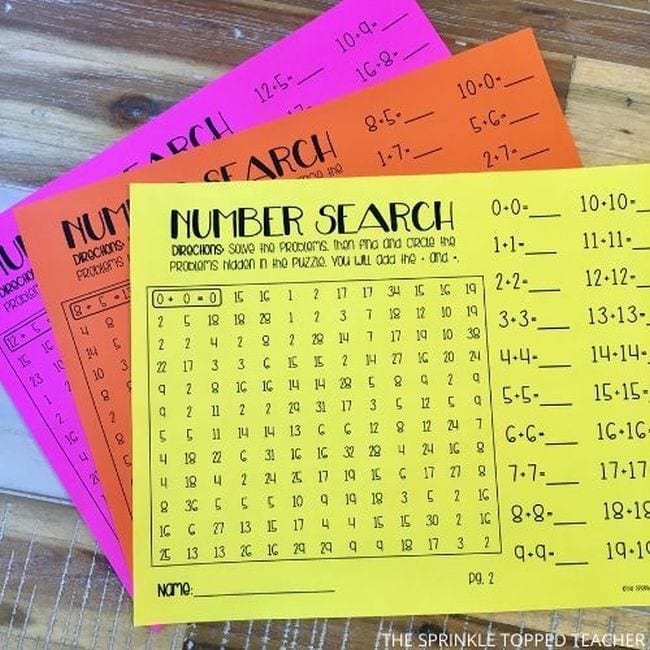
These number search puzzles are harder than they look. First, kids complete the addition facts. Then, they search for those equations in the puzzle. Get three free puzzles at the link, where you can purchase more if you like them.
Learn more: The Sprinkle Topped Teacher
13. Use flash cards to play Fifteen in a Row
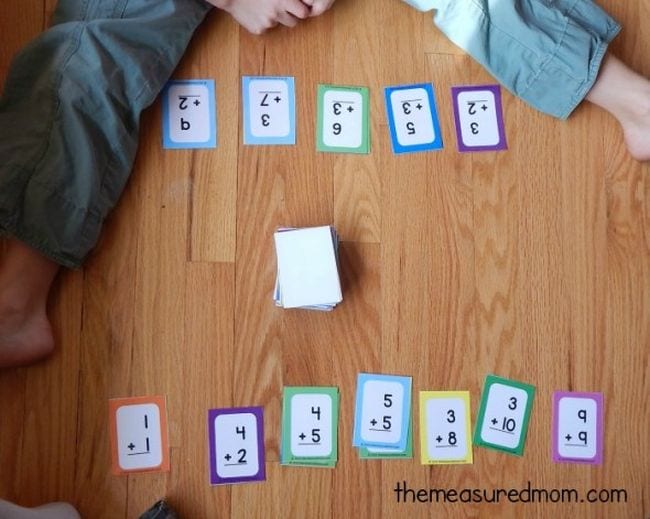
When it comes down to it, flash cards are still one of the best ways to practice fact fluency, but math facts games can at least make them more fun. The goal is to lay out 15 flash cards in a row by the total of their sums (or differences, products, or dividends), from smallest to largest. Learn how it’s played at the link.
Learn more: The Measured Mom
14. Make a math-facts practice wheel
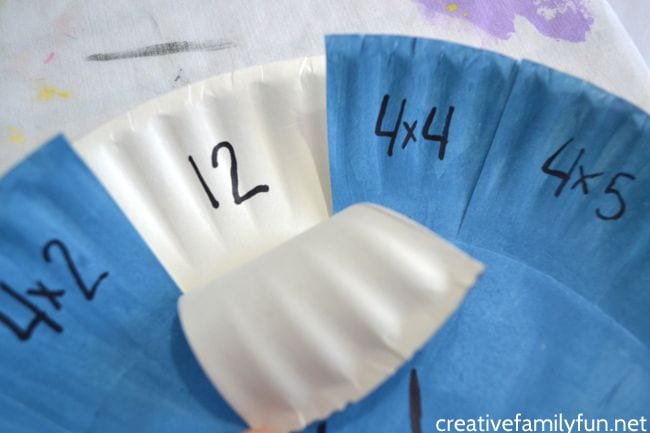
All it takes is paper plates, glue, and a marker to help your students learn their math facts. Up the fun factor by having students decorate their plates any way their imagination can dream up!
Learn more: Math Facts Wheel/Creative Family Fun
15. Whack a ball to subtract
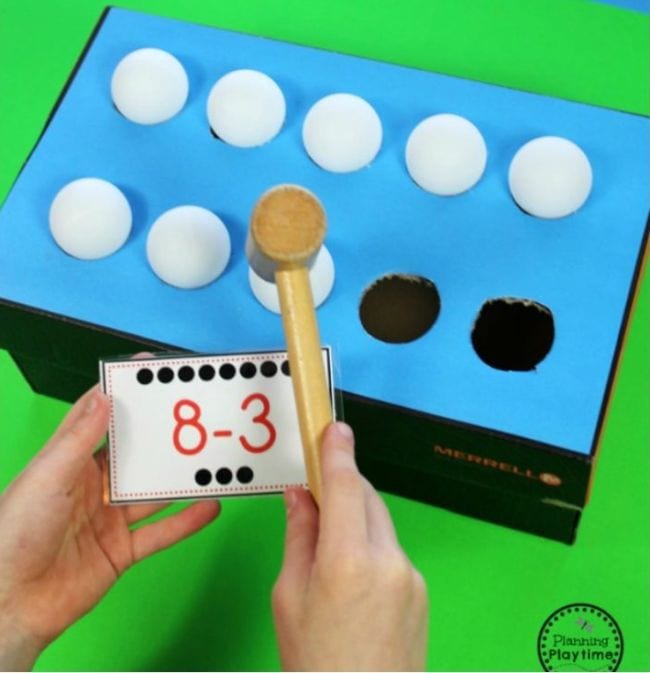
You know your elementary math students are going to love this! Build your own whack-a-mole 10-frame with a shoebox and Ping-Pong balls. Then, have kids whack the balls to practice their subtraction facts. So fun!
Learn more: Planning Playtime
16. Get a jump on your math facts practice
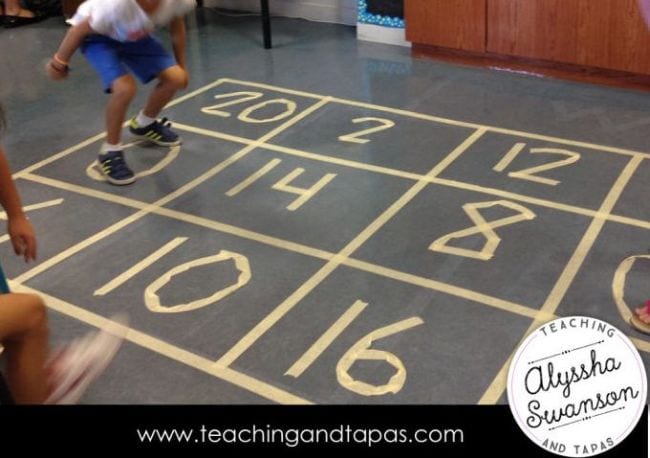
Lay out a grid like the one shown that has the answers to whatever set of math flash cards you’re currently working with. (This teacher used masking tape; you could also do sidewalk chalk on the playground.) Two players face off, one on each side of the board. Show the flash card, and kids race to be the first to jump to the correct square with both feet inside the lines. Get all the rules at the link below.
Learn more: Teaching and Tapas
17. Run a flash card race
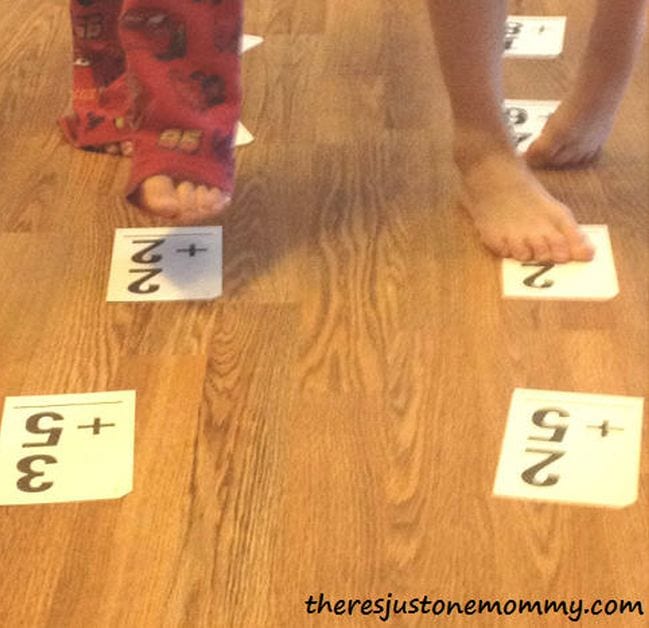
Tape a series of flash cards to the floor and challenge kids to see who can correctly make their way from start to finish the fastest. They can call out the answers or write them down, but they have to get it right before they move on. Kids can race side by side or work independently to beat their own best time.
Learn more: There’s Just One Mommy
18. Draw Waldorf math facts flowers
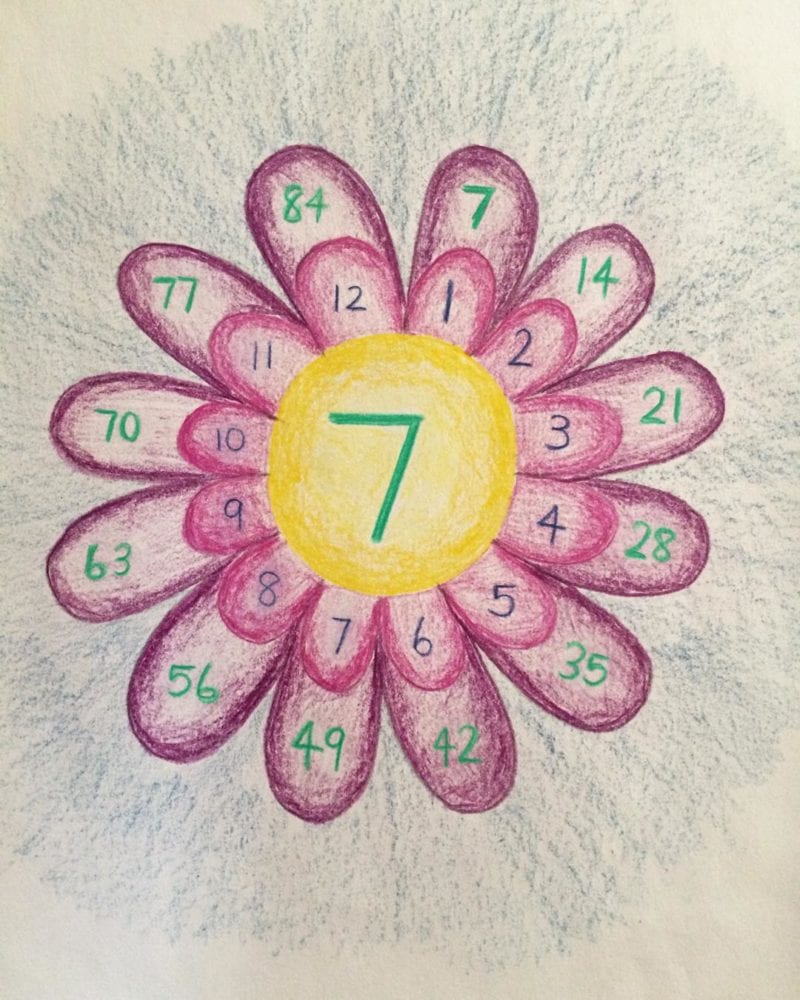
This is a creative way to teach math facts. Start by drawing the center of a flower and write any number from 1 to 9 in the middle. Next, draw 12 petals around the center, labeling them 1 through 12. Last, draw another 12 petals and write the sum or product of the center number and the petal adjacent to the new petal.
Learn more: Multicultural Motherhood
19. Catch a math beach ball
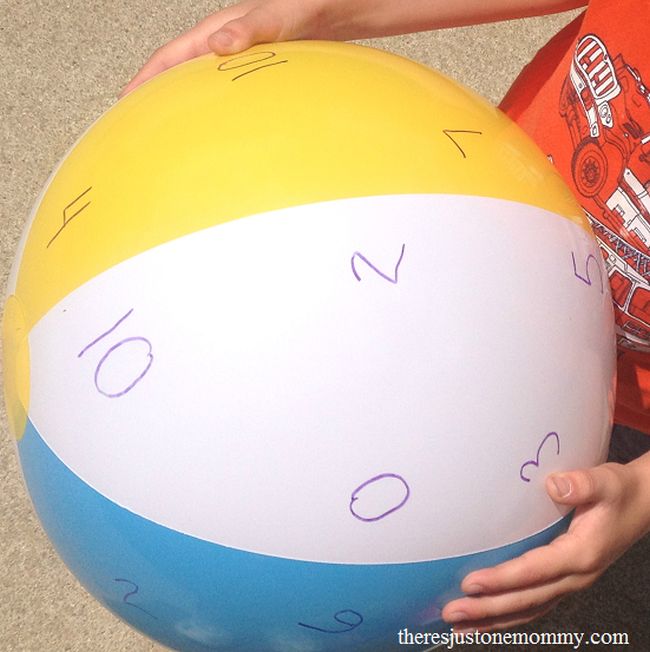
Beach balls are so much fun in the classroom. Scribble numbers all over one with a Sharpie, then toss it to a student. Wherever their thumbs land, they add (or subtract or multiply) those two numbers together before tossing the ball to the next student.
Learn more: There’s Just One Mommy
20. Practice facts by stacking cups
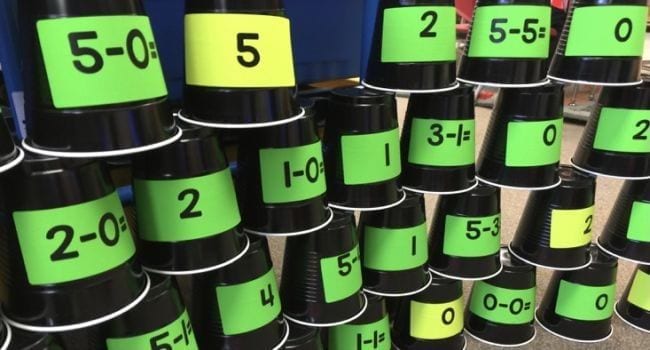
We’re not sure why, but kids simply love stacking cups. Label yours with math problems and answers, then have kids build pyramids and towers galore.
Learn more: The Kindergarten Smorgasboard
21. Design outdoor math facts board games
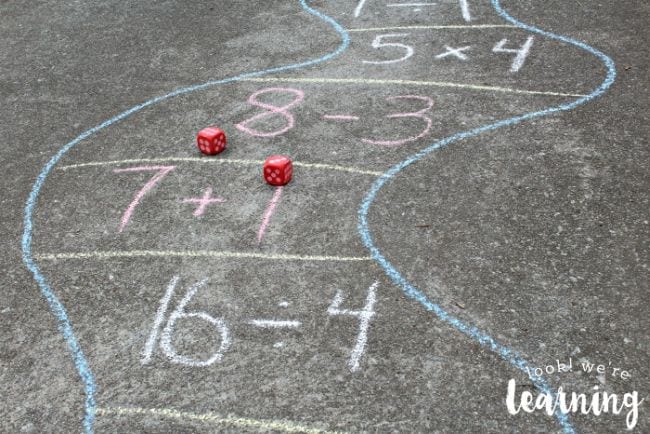
Draw a winding path and fill the spaces with math equations. Kids roll the dice and move from space to space (have them jump, skip, or twirl to mix things up). If they get the answer right, they move to the new space. If not, their turn is over. Customizable math facts games like this can be used at any level.
Learn more: Look! We’re Learning
22. Compete at math bingo
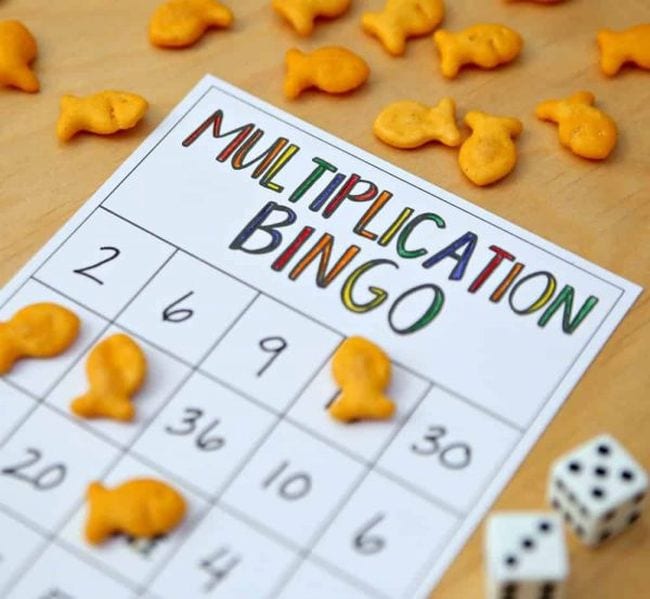
Math facts bingo is so easy to set up and play. Give kids empty grids and ask them to write various sums, differences, products, or quotients, depending on what you’re working on. Then call out math problems and have them cover the answers. First to fill in a row wins.
Learn more: Happy Go Lucky
23. Play math facts checkers
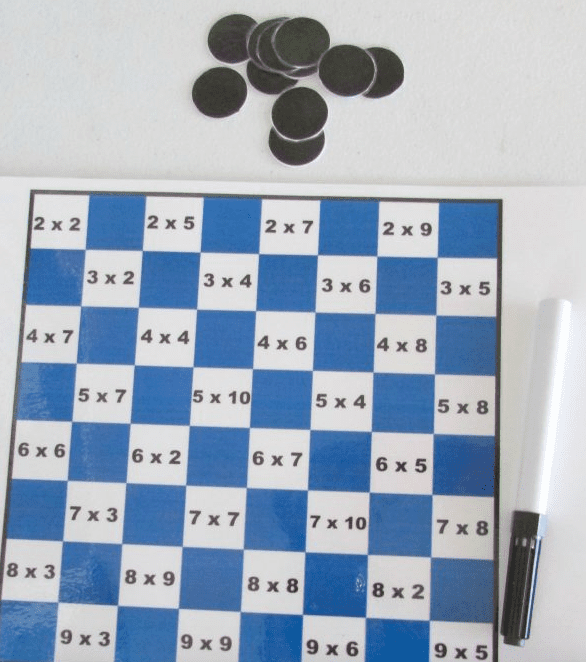
Label a checkerboard with math facts. Play checkers as usual, following the traditional rules. The twist is, you must solve the math problem you land on!
Learn more: Teach Beside Me
24. Change your students’ names (temporarily)

This is so clever. Grab some name tags and write math facts on each. Give a tag to each of your students. For the remainder of the day, everyone will refer to one another by the answer to the equation on their tag (e.g., the student with the name tag that says 7×6 would be referred to as “42”).
Learn more: Mr. Elementary Math
25. Match up math facts
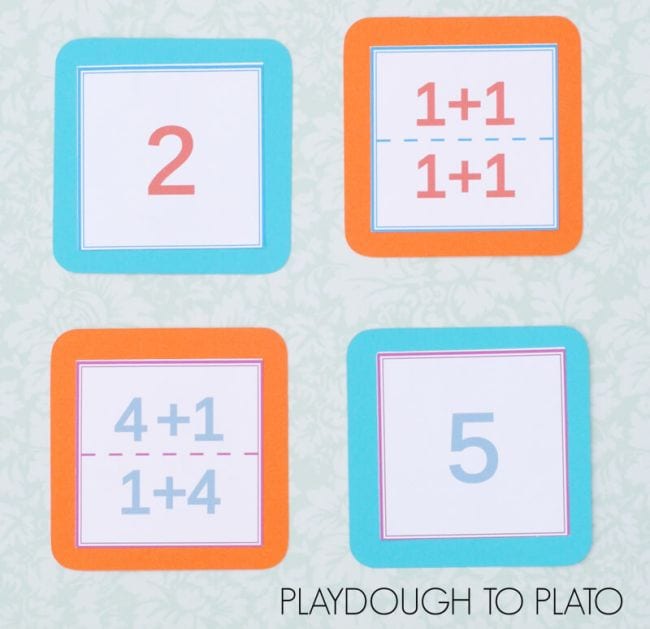
Play Memory (also called Concentration) with math facts. Get free printable cards at the link for addition facts to get you started.
Learn more: Playdough to Plato
26. Play Math Twister
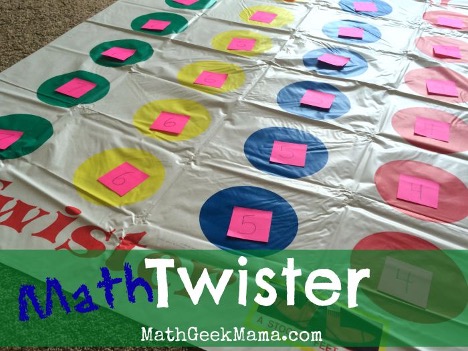
Who doesn’t love to play Twister? Use stickies to place answers to addition, subtraction, multiplication, or division problems on a standard Twister mat. Write numbers used in the problems on stickies and place them on the spinner. Your students will love getting out of their seats to place their hands or feet on the correct answer!
Learn more: Math Geek Mama
27. Slap numbers with a flyswatter
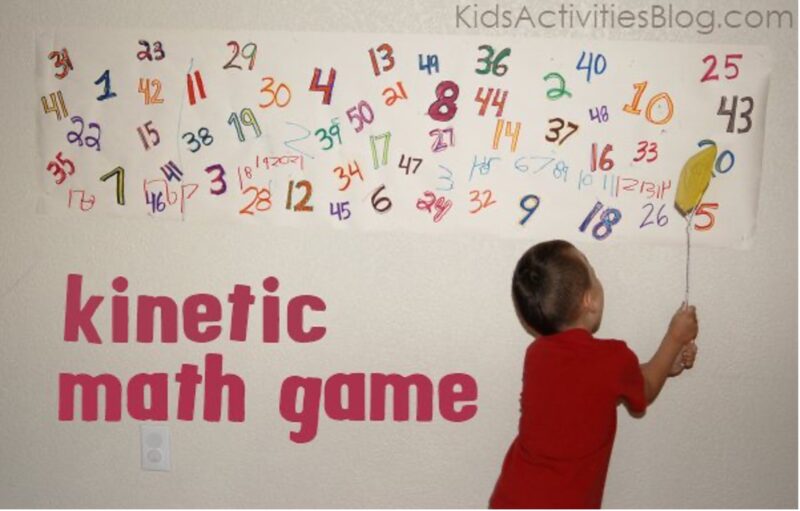
Here’s another great activity for your students who like to learn on the move. Prepare a game board with the answers to the math facts you want to review. Call out the problem, and your students will enthusiastically swat the answer. This can be played with individual students or with two or more as a competition.
Learn more: kidsactivities.com
28. Play Subtraction Stacks

Looking for a non-competitive activity? Students learning to subtract can play this game at their own pace. Each child gets two dice and 10 discs to stack wherever they like on the game board. After they roll the dice, students determine the difference and remove a disc from that number’s stack. They win when they clear their board.
Learn more: Math Fact Fluency Companion Website
29. Play 101 and Out
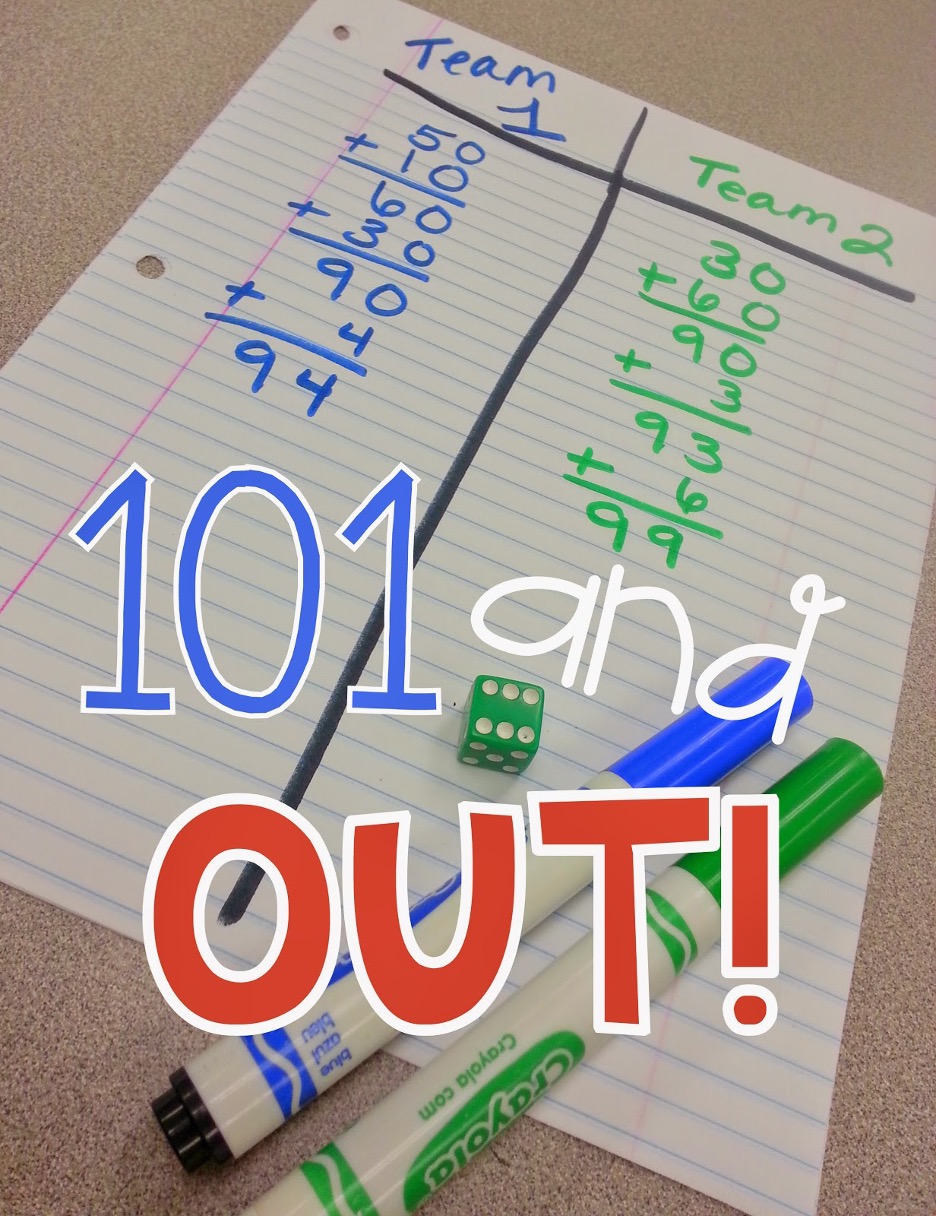

This exciting game combines strategic thinking and fact mastery. Students roll a die and decide if they want the digit to count as a 1 or a 10, i.e., a roll of 3 could be used as 3 or 30. Students add their results as they go. The winner is the student who gets closest to 101 without going over.
Learn more: Laura Candler’s Teaching Resources
30. Set up a multiplication toy store
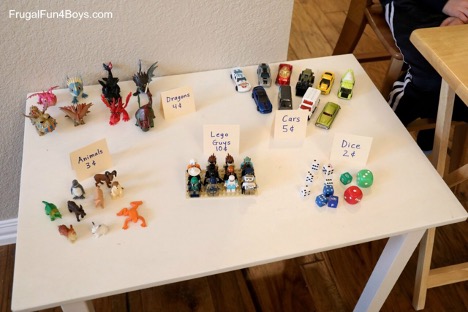
Students are highly motivated when they have choices. In this activity, the teacher sets up a class “toy store” and prices each type of item. Students get to shop and fill out an order form, on which they write the unit price and number of items they wish to purchase. Finally, they multiply the number of items by the price, add it all up, and come up with a grand total.
Learn more: Frugal Fun for Boys and Girls
31. Play Subtraction Bowling
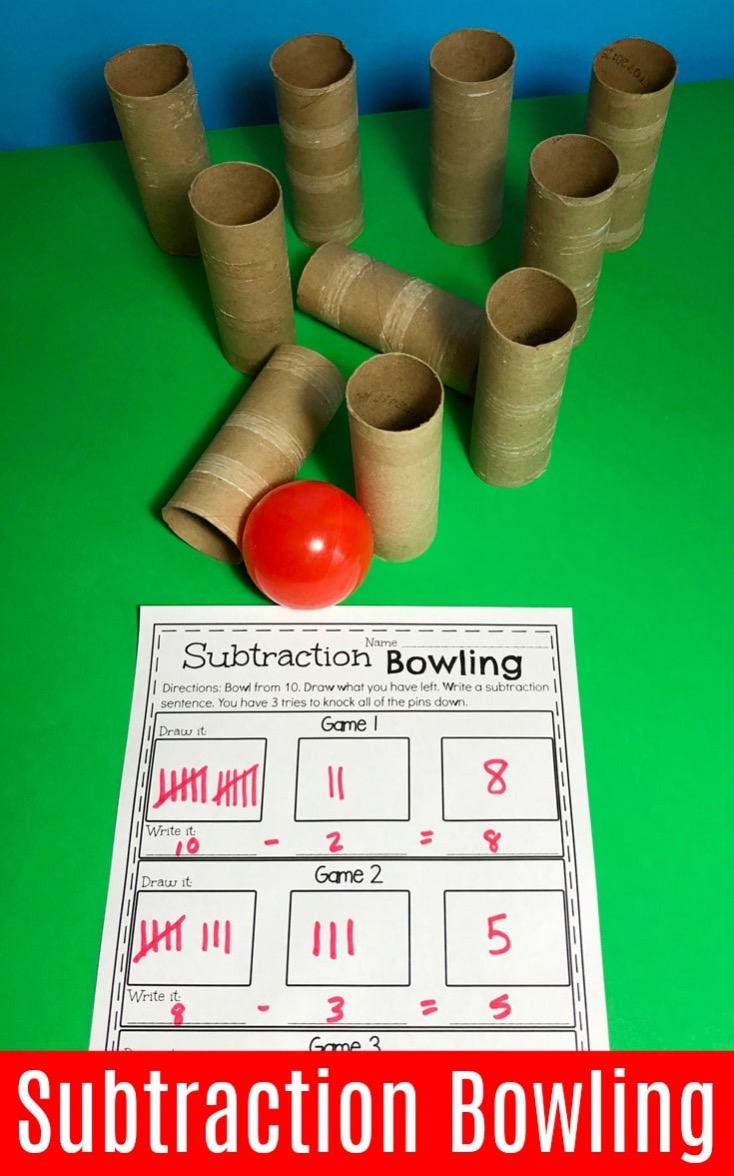
Your students will really enjoy playing this game! It requires 10 empty toilet paper rolls, a ball, and a pencil and paper for keeping score. After setting up the “lane,” students will roll the ball, knock down as many pins as possible, then record the result on their scoresheet. For example, 10 – 3 = 7. On the second roll, they start with 7 and subtract the number of pins they knock down on their scoresheet.
Learn more: Planning Playtime
32. Strike it out
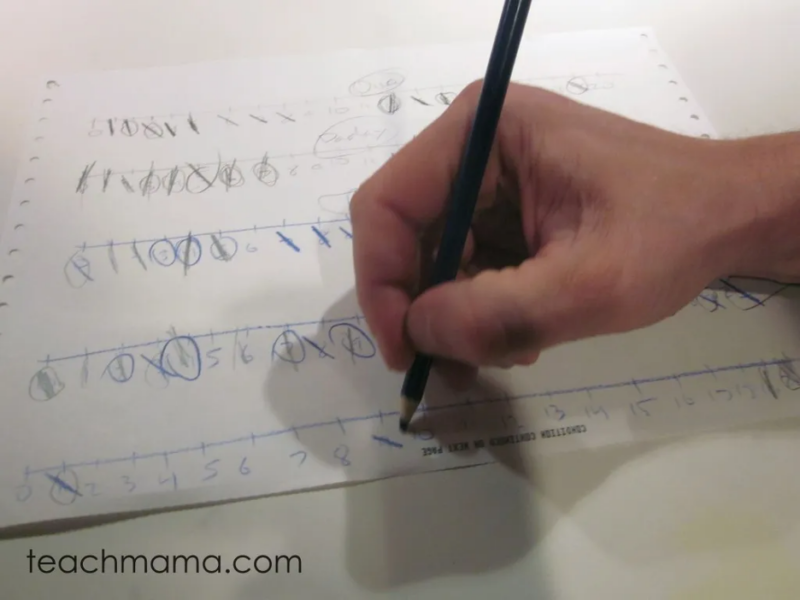
This is another great game that combines strategy with mastery of addition and subtraction facts. Students begin by writing a number line from 0 to 20. The first player circles two numbers, then circles the sum or difference of the first two numbers. Player 2 takes the first player’s result, circles another number, then circles the sum or difference of those two numbers. The winner successfully blocks their opponent from being able to complete another problem.
Learn more: Teach Mama
33. Mix maps with math

Kids love to work with maps, and this worksheet combines geography and math. Students solve the multiplication problems, then find the country with the product inside its borders and color them.
Learn more: Mr. Nussbaum Learning + Fun
34. Stand Back 2 Back
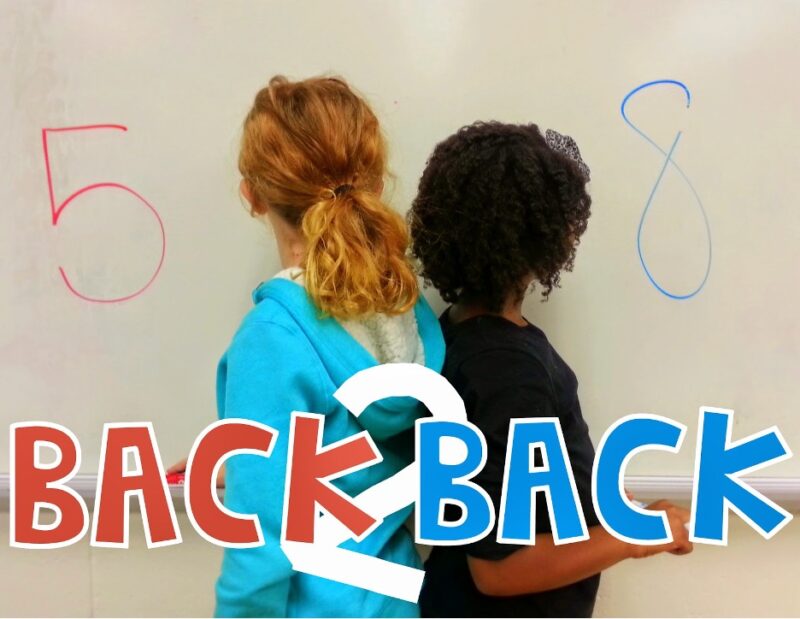
This exciting competition is for the entire class. Two students stand back-to-back and write a number on the board that they can see but their opponent can’t. A third student calls out the answer to a math problem using the two numbers, like “the product is 30” or “the sum is 11.” The first student to identify their opponent’s number is the winner!
Learn more: Laura Candler’s Teaching Resources
35. Write on the window
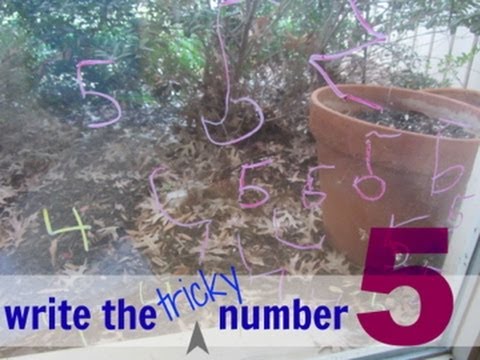
If your students are having a hard time actually getting the numbers down on the paper correctly, shift gears and have them write on the windows with paint pens to further engage them.
Learn more: Teach Mama
36. Play baseball math
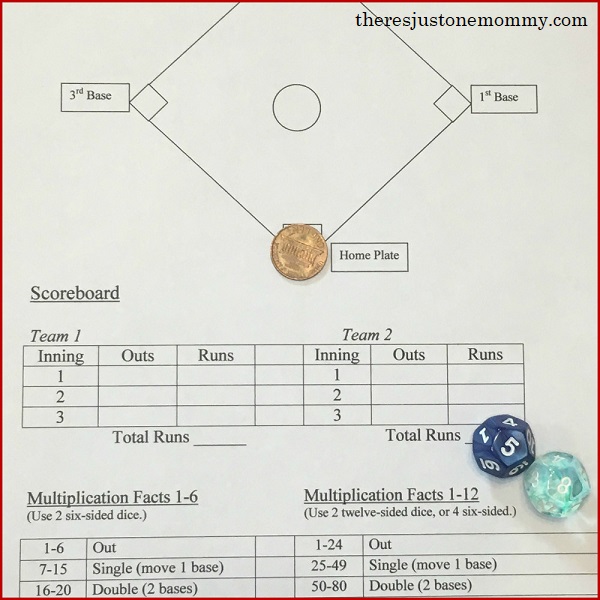
Use a printable sheet to turn math into an interactive game of baseball that your classroom will love.
Learn more: There’s Just One Mommy
37. Try Nerf Gun Math
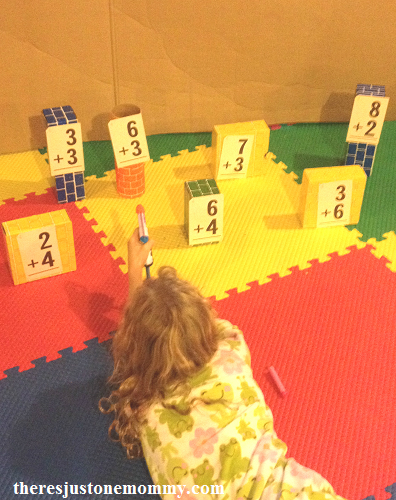
Set up little targets with math facts to enrich your students’ knowledge of the topic. Then students get to shoot the targets that have the correct answer with a nerf gun!
Learn more: There’s Just One Mommy
38. Play Math Chutes and Ladders
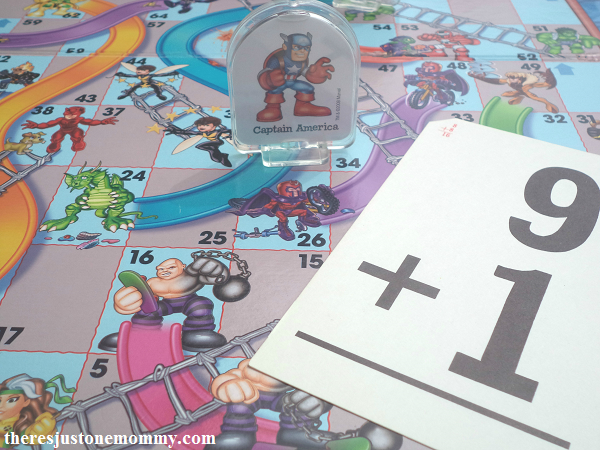
Your students will understand and recognize this familiar game, which will make it that much easier to set it up in the classroom.
Learn more: There’s Just One Mommy
39. Make a cootie catcher with math facts
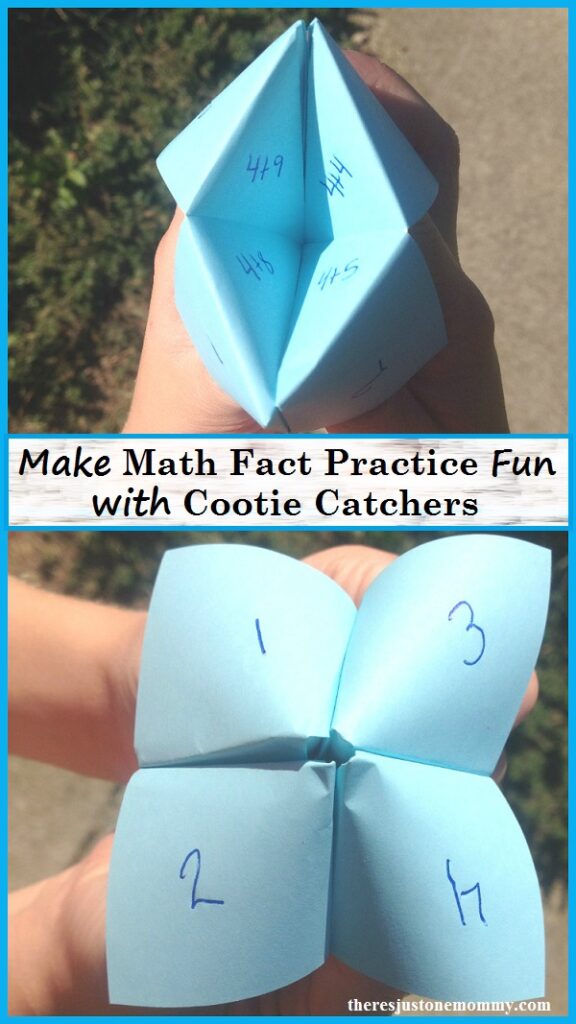
As long as your classroom doesn’t get too rowdy trying to mess around with these cootie catcher activities, this is one of the perfect math facts games that gets your entire classroom involved, from setting up the actual cootie catchers to playing multiple different games with them.
Learn more: There’s Just One Mommy
40. Play Sum, Say, and Spray
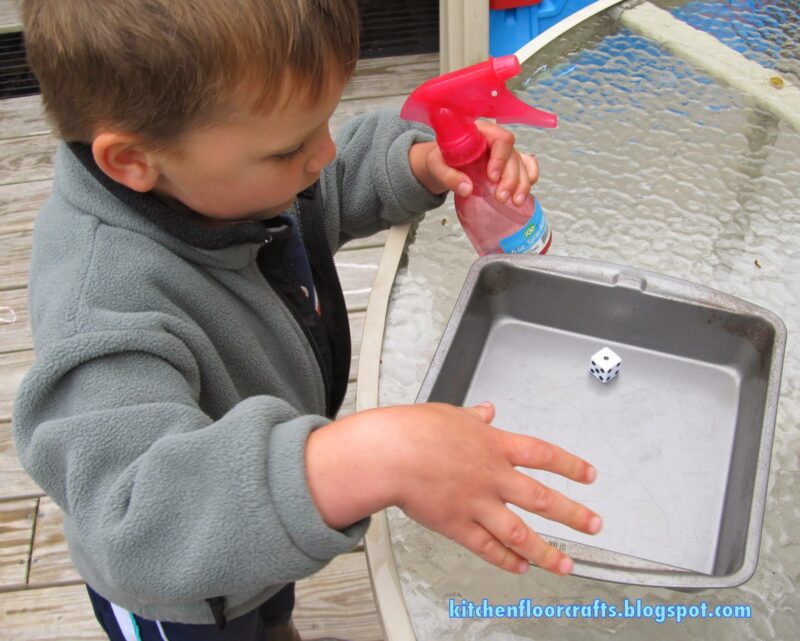
Follow the instructions below to play a fun game on a sunny day with your students.
Learn more: Kitchen Floor Crafts
41. Try this Plus 1, Minus 1 card game
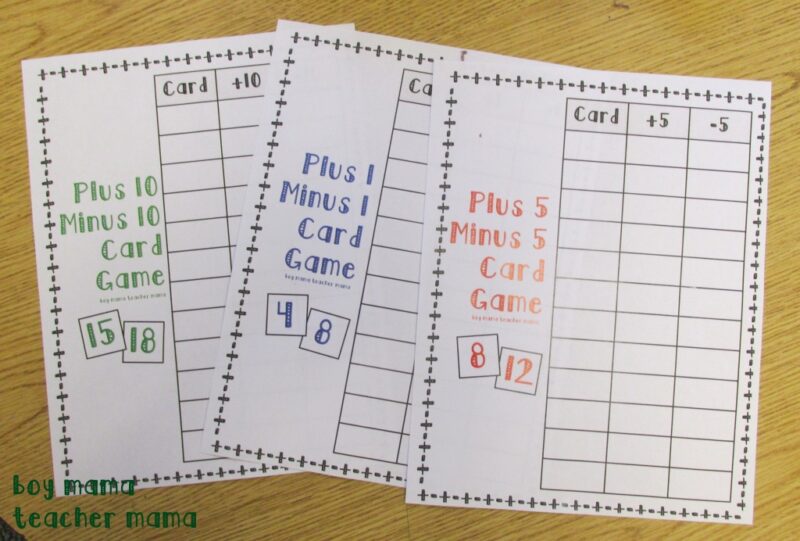
Use these printables to play the Plus 1, Minus 1 game with your students. This game allows for lots of customization to curate to your students’ needs.
Learn more: Boy Mama Teacher Mama
42. Make addition pancakes
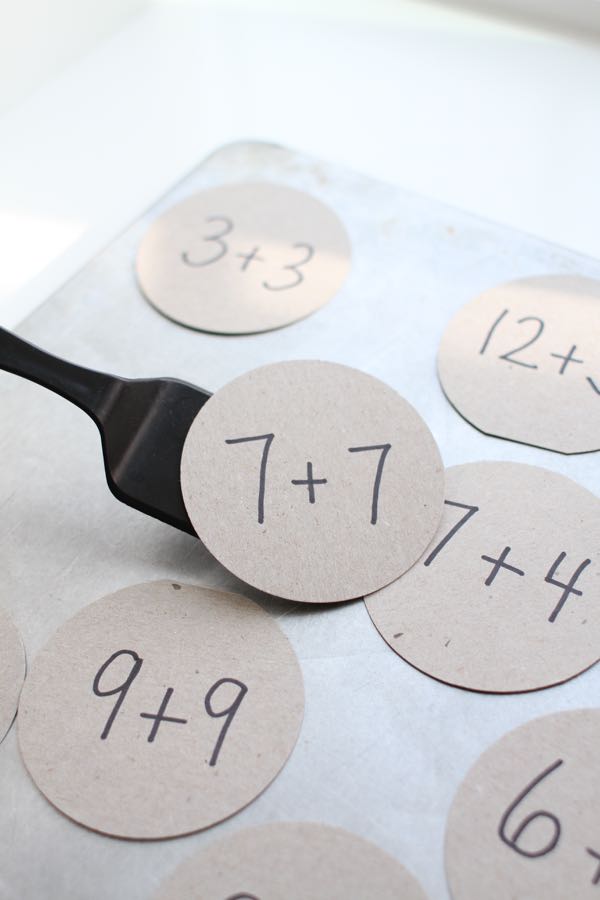
Make these DIY pancakes and have your students serve up addition problems to one another. The possibilities for these math facts games are endless with this fun format of addition problems.
Learn more: I Can Teach My Child
43. Go island hopping with math facts
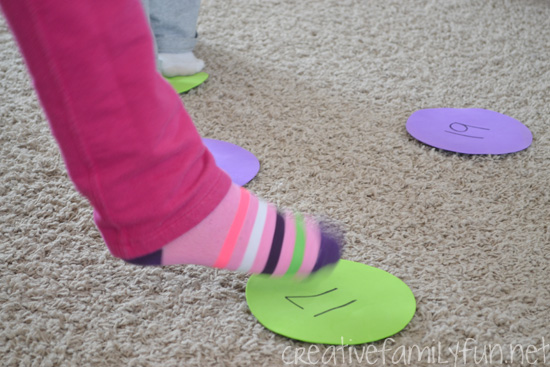
Cut out pieces of paper with addition and subtraction problems on them, and spread them across the floor of your room so your students can hop from problem to problem.
Learn more: Creative Family Fun
What are your favorite ways to practice math facts? Come share on the WeAreTeachers HELPLINE group on Facebook.
Looking for more? Check out all of our K-5 math resources here!
